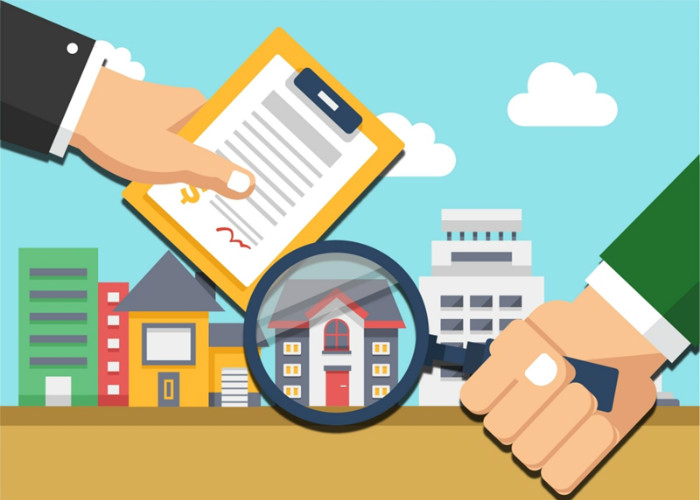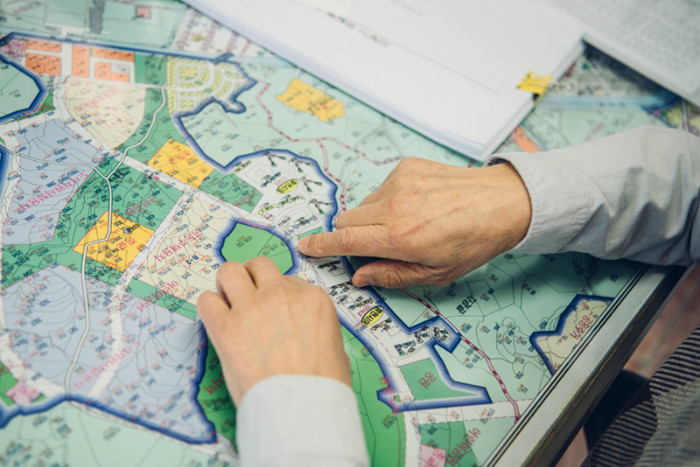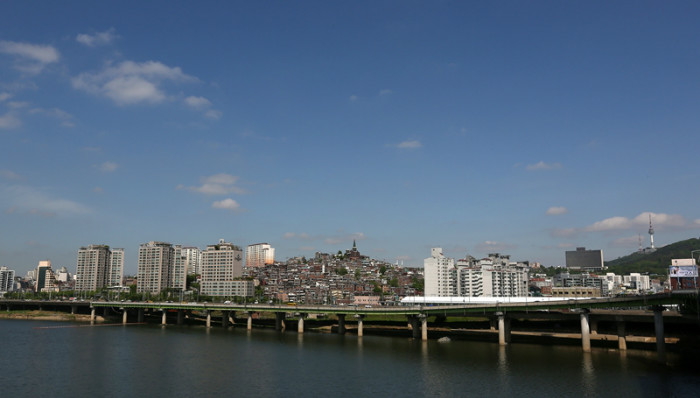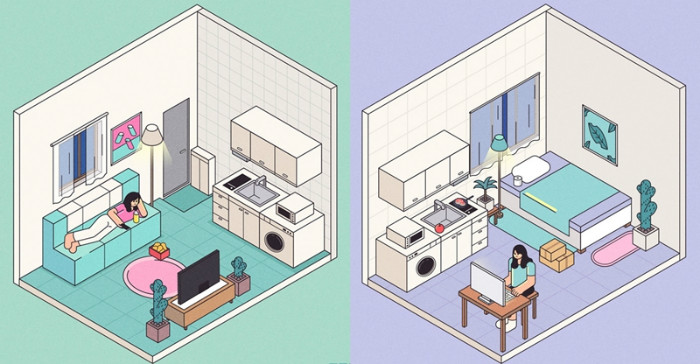
The Korean housing rental system is markedly different from its German counterpart. (iclickart)
By Korea.net Honorary Reporter Elena Kubitzki from Germany
One of the biggest challenges non-Koreans face time after time in Korea is finding a place to live. The more time spent looking for housing, the clearer the differences become between the Korean and German rental systems. Since house hunting is a topic of high interest for international students, employees and even long-term travelers, this article seeks to clear confusion about the options in Korea.
Real estate agent
The first big difference is the crucial role of the real estate agent, or budongsan, in Korea. In Germany, people usually search for homes via newspapers, recommendations from friends or searching the internet. The lease agreement is usually made directly between the landlord and tenant. Korea, however, has a considerably different system, and nothing happens without a budongsan. The easiest way to find a home is to go to the area of desired residence and visit several real estate agents to check out their offers. The kinds of units they show depend on the budget, size and furnishings desired by a prospective tenant.
Once you find something you like, make a down payment immediately to secure the unit. A lot of people in Seoul are always looking for places to move into, so a good offer might be snatched by someone else if you wait too long. Thinking over a housing decision overnight cost me one or two potential rooms in the past.
A person who agrees to move into a unit usually pays a percentage of the rent as the gyeyakgeum (contract amount), which ensures that neither the agent nor the landlord will give it to someone else. On the day the tenant moves into the home, the rest of either the lump-sum deposit (jeonse) or security deposit (bojeunggeum) must be paid to the landlord after the lease agreement is signed. For those who rent on a monthly basis, which is called wolse in Korea, the first month's rent is usually paid when moving or on a designated date of the month.
Lease agreement
The lease agreement is signed at the real estate agent's office by the landlord, tenant and the agent who introduced the house to the tenant. Key information such as the amount of security deposit and rent, move-in date and general rules on the home are included in the document. Before signing, you should meticulously check all personal information such as names and ID numbers to prevent fraud. In addition, the tenant receives documents on the landlord's financial situation to see if he or she has any debt. This is especially important for tenants putting down a high amount of jeonse.
The agreement should also stipulate the fee owed to the real estate agent, usually a percentage of the annual rent running in the hundreds of thousands of KRW but subject to legal ceilings. Both the tenant and landlord pay this charge. While not everyone is happy with this, this fee is paid to the agent for finding the place and "buys" the tenant peace of mind that the agent will compensate the tenant if the landlord cannot or will not return the former's deposit.

Jeonse is a housing rental system in Korea that is the only one of its kind in the world. (iclickart)
Jeonse vs. Wolse
A major reason for the need for the real estate agent in Korea is the large sum of money moving from one party to the other when renting a home. This is especially true in the case of jeonse. While Germany offers the option of renting or buying an apartment, Korea offers a third choice of renting a place by loaning the landlord a percentage of the home's sale price; the amount is returned to the tenant when the latter moves out. Under a jeonse agreement, the tenant pays no monthly rent as the landlord simply borrows the lump sum for the duration of the rental period. Thus a person who has a couple hundred thousand EUR lying around could invest in such an apartment, live there rent-free for two to three years and get the amount back after moving out.
This system originated at a time when Korean banks offered huge interest rates, making it more profitable for homeowners to invest their jeonse money instead of receiving small amounts of rent every month.
Because jeonse can require several hundred thousand euros, a tenant must be fully aware of the landlord's financial status. Equally important is finding a real estate agent who is contractually bound to compensate the tenant if a homeowner is unwilling or unable to repay back the jeonse amount after the lease expires.
The second way of home rental in Korea is far more similar to a German one: wolse, or monthly rent. Yet in Korea, the average amount of the security deposit, called bojeunggeum or key money, is far higher. In Germany, the deposit is usually equal to one or two months' rent, but in Korea, 10,000 to 50,000 EUR is required. A twist is that the higher the deposit, the lower the monthly rent. Again, investing a bigger sum like in jeonse can be profitable in the long run for those who can afford this costly method.
A final consideration in renting a home in Korea is gwallibi, or monthly maintenance fees mostly at apartment complexes or newly built villas. These expenses cover the cleaning of common areas like stairs, elevator maintenance and the services of a handyman and security guards. Certain places will also offer internet or TV connection or electricity costs as part of these fees. Since gwallibi in big and modern buildings can easily surpass 100 EUR a month, those looking for homes should know how much the fees are while house hunting.

When looking for a place to live in Korea, the real estate agent plays a crucial role. (Korea.net DB)
Housing unit types in Korea
The five most popular housing types in Korea for foreign students are the one room, officetel, apartment, villa and gosiwon.
Apartment
Apartments are the biggest, nicest and costliest form of housing in Korea. They mostly come unfurnished.
Officetel
The so-called officetel (a combination of the words "office" and "hotel"), a smaller and more affordable version of the apartment, mostly comes fully furnished (though a bed is often missing) and is usually available via both jeonse and wolse. In size, they usually range from one to three rooms.
One room
If the officetel is outside your budget, the so-called one room could suffice. As the name suggests, this is a studio apartment similar to that in Germany, with a single room housing the kitchen, living room and bedroom. This housing type is a favorite of college students as affordable one-room units are easily found near universities. Though many of these homes are nice to live in, watch out for those in old buildings or banjiha (half-basement) or ones with virtually no soundproofing.

The so-called one room is a type of housing unit in Korea. (iclickart)
Villa
While its name might sounds promising, a villa usually refers to an old and small building. Though generally bigger than a one room (and sometimes advertised as a "two room"), a villa comes unfurnished.
Goshiwon
Coming in last place in size and comfort is the tiny goshiwon. The average size of a goshiwon is under 10 square meters and barely fits a small bed and desk, and if a luxurious model, a "toilet shower" is placed inside a shower cubicle. For those on an ultra-tight budget or who simply need a place to sleep, a goshiwon is both an economic and acceptable choice.
In my nearly four years in Korea, I have lived in a goshiwon, villa, one room and officetel. Among the four types, I like the officetel the best but it's also the most costly option. Nowadays, nice and clean units with one or two rooms are growingly available. Visiting several budongsan while house hunting is highly recommended, and widening the area of the search can also be a big help in finding the right housing.
jesimin@korea.kr
*This article is written by a Korea.net Honorary Reporter. Our group of Honorary Reporters are from all around the world, and they share with Korea.net their love and passion for all things Korean.